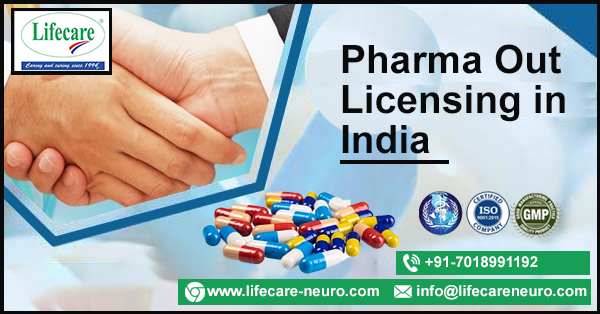Pharma Out Licensing India on a Greater Requisition
Pharma Out Licensing India collaborations are becoming a more appealing alternative for many multinational pharmaceutical corporations. These license options assist businesses in offsetting their R&D expenditures and avoiding the lengthy innovation and development process. Lifecare Neuro Products Limited is one of the leading pharmaceutical companies which is providing pharma out licensing opportunities.
What is licensing?
When a third party (the Licensee) receives permission to utilize an inventor’s (the Licensor’s) intellectual property under mutually agreed-upon terms and conditions, this is referred to as licensing in the pharmaceutical industry.
After the first agreed-upon time period, licensing can be renewed for a variety of transactions, including production and/or marketing rights in certain regions.
What is Out Licensing?
Finding partners that can aid in identifying the target market and getting the product into the proper hands is the process of Pharma Out Licensing. One of the following is possible for the Intellectual Property (IP) that the licensor (Innovator) offers to the licensee:
- API, Semi-Finished and Finished Formulation Supply
- Copyright of Process/Technology
- Rights of Trademark or Brand Name
- Patent of Product or Process
Reasons for Pharma Companies Turning to Out Licensing for their Brand Growth

- Lack of Local Market Familiarization:
Coming to terms with the local culture, regulatory understanding, business contacts, and creating local relationships can be a significant barrier for organizations that have not yet established a presence in Asia.
Companies may struggle with cultural differences, have trouble leveraging the current economic situation and governmental laws, and be unable to identify the nation’s current infrastructure facilities without deep industry acumen and comprehensive local knowledge.
- Limitation of Budget:
Getting a product through the regulatory process and into commercialization is frequently a time-consuming, expensive, and risky process for any company, but especially for start-up businesses. No matter how well-established they are, these businesses must prioritize their limited resources and make decisions, especially if they are eager to tap into various sectors.
These businesses must decide if it is still financially feasible for them to move onto the marketing, distribution, and sales stages of the product life cycle after investing a sizable sum in R&D and maybe clinical trials.
- Time Risk and Learning Curves:
Companies simply do not have the time or luxury to research the markets they are entering since there is an increasing demand for pharmaceutical items on a global scale – BMI Research predicted that medicine sales in the Asia Pacific region will reach billions of dollars by the end of the year.
A product owner can reduce the time risk of understanding the market and determining what works and what doesn’t by utilizing the experience of the proper business partner. The owner may rest easy knowing that everything will be handled since the partner will be in charge of overseeing all area of the product’s commercialization from the very beginning, including the registration procedure, regulatory affairs, and pre- and post-launch marketing efforts.
Frequently Asked Questions
What is Out Licensing in Pharma?
Finding partners that can aid in identifying the target market and getting the product into the proper hands is the process of Medicine Out Licensing India. Working with marketing companies or legal firms may be a part of this process.
What are out licensing deals?
In general, the term Medicine Out Licensing refers to a business engaging an outside business partner to assist in bringing a product to the target markets after taking the initial steps to generate it.
What are the 3 P’s of Licensing?
Collegiate licensing’s three pillars are protection, promotion, and profit that have a desire for defense. And, Lifecare Neuro Product Ltd one of the leading out-licensing pharma companies is providing & following these three P’s of licensing.
What are the 4 Licensing Objectives?
- Public security
- The suppression of chaos and criminality.
- The defense of children against harm.
- Eliminating public nuisances.
What are the 3 Licensing Process Phases?
- A Learner’s Stage/Permit
- An Intermediate Stage or Provisional License
- A Full Privilege Stage/License
What Two Provisions Make Up a License Agreement?
A license agreement should specify the term as well as the conditions under which each party may terminate it. The ramifications of early termination should also be spelled out in detail in the event that an agreement is ended before its term has run its course.

